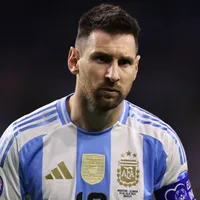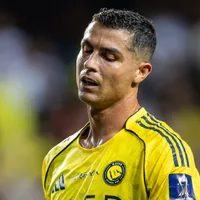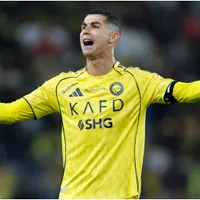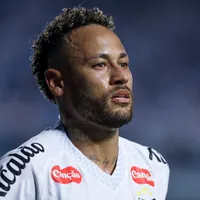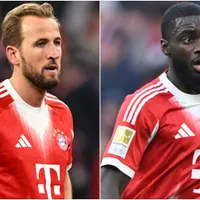
Who’s going to win the 2014 FIFA World Cup then?
It’s a perilously difficult question to answer. Soccer—as the old cliché goes—isn’t won on paper. Most of the time, the team with the most desirable combination of players, manager and mentality come out on top. But those small margins, the differentials that ultimately separate those teams who sample glory and those who endure despair, often come down to blind luck.
Nonetheless, supporters from all over the world formulate their own picks, adding up all the facets—some tangible, recordable aspects of the game, other based on instinct alone—and by the conclusion of that thought process, they have their winner.
Here, we’re going to try and help you make your picks, isolating seven key areas in which teams must excel if they’re to win the most coveted trophy in the game.
We’ve rated every team out of five in all seven categories and whilst the tournament certainly isn’t won on paper. Hopefully this will provide a comprehensive look at the chances of each team involved.
These are the categories that we’ve chosen and why each is vital to a team’s chances of glory:
Starting XI – A team’s first XI will ultimately go a long way to determining whether or not they’re in store for a prosperous World Cup. Of course, the convoluted nature of the tournament means that managers will need to be astute in their squad rotation, but for the vast majority of teams, the core of their team will remain the same throughout the tournament.
Squad – When injuries and suspensions do hit, the depth of a nation’s squad will also be crucial. If a key player drops out before the tournament, do the team have enough in reserve to replace him? Will the manager feel confident rotating players? Or given their resources, will they have little choice but to run the best XI through the ringer in the South American sun?
Manager – A capable manager can make a huge difference to a nation. Has the manager sampled major tournaments before? How has he fared in World Cup’s gone by? Will his tactics be suitable in the unique Brazilian conditions? If not, has he showcased an ability to adjust?
Adaptability – For plenty of the teams that are involved in this tournament, the conditions are going to be a major factor. Playing in the Brazilian heat can be punishing, whilst the humidity at the host of venues will be suffocating. Is the team experienced in these kind of conditions? Or will they wilt under the physical demands these conditions will place upon teams.
Star Quality – We’ve seen it before, how one wonderful player can galvanize a team. Diego Maradona inspired Argentina to victory in 1986, Ronaldo’s goals fired Brazil to glory in 2002 and the majesty of Zinedine Zidane very nearly facilitated a French win in 2006. Does the team have a player of that ilk? One that can haul his team over the line with a moment of genius?
Draw Difficulty – Whilst you occasionally need a lucky bounce of a ball, a favorable draw can also make a big difference. If a dream gets drawn in a group of death their chances will naturally diminish, whilst a relatively simple passage through the group can be a catalyst for a deep run into the competition.
Winning Pedigree – Often on these big pressure occasions, it’s the teams that have a winning mentality engrained into their make-up that come out on top. So does the team have players that have sampled silverware on both the international and domestic stage? Do they know how to grind out wins when the odds are against them?
So we’re going to 17 teams on each of these factors, and see who looks likely to come out on top in South America. With all things considered, here is who we think will win this year’s World Cup.
=16. Mexico (27 out of 35)

=16. Russia (27 out of 35)

=14. Switzerland (27.5 out of 35)

=14. Netherlands (27.5 out of 35)

13. Portugal (28 out of 35)

=11. Ivory Coast (28.5 out of 35)

=11. England (28.5 out of 35)

10. Italy (29 out of 35)

=8. Chile (29.5 out of 35)

=8. France (29.5 out of 35)

7. Belgium (30 out of 35)

6. Uruguay (30.5 out of 35)

=4. Colombia (31 out of 35)

=4. Germany (31 out of 35)

If this tournament was being played in Europe, Germany would stand an excellent chance of winning the competition. Joachim Loew’s team play with an intensity and a ruthlessness that’s rarely found in an international team, but whether or not they can implement that style fully in the South American heat remains to be seen.
Pitted in a group with Portugal, Ghana and the United States, don’t expect the Germans to have things their own way. Nonetheless, this still have enough quality to make it out of the group and into the knockout stages.
Aside from the centre forward berth—where they look likely to rely on an aging Miroslav Klose—this team has class in every area. They have the intricacy of players like Mesut Ozil, the cutting edge of players like Marco Reus and the experience of players like Philipp Lahm.
Loew has a wonderful squad at his disposal, and one that should see the Germans go close to winning their first major title since EURO 1996. The core of the squad is made up of those players from Bayern Munich and Borussia Dortmund, and as such, they know what it takes to win the biggest games. You can see how the bookmakers rate them on the 2014 World Cup betting site.
The squad is rife with winning a strong winning mentality and a desire to end Germany’s 18-year trophy drought. Too much depends on how they will adapt to the conditions to label them as potential winners, though.
=2. Brazil (31.5 out of 35)

Unsurprisingly, the host nation are the favorites to triumph with the bookmakers. They’ll be used to the conditions, they’ll be roared on by fanatical support and in Luiz Felipe Scolari, they have a manager who knows what it takes to win a World Cup.
Brazil’s squad has an abundance of quality, but take a look at their first XI—whilst it is indisputably strong—there are holes there. Most notably in the centre forward position, where they are lacking forward that marries qualities of dynamism, incisiveness and clinical finishing.
But the strengths in this squad are obvious and plentiful. The defense is a particular strength, and will consist of Thiago Silva and one of Dante or David Luiz. Dani Alves and Marcelo will provide industry and vibrancy from the full-back positions and in Neymar, Brazil have a direct, scything forward that can create a host of problems for the opposition.
The manner in which the Barcelona forward flourished at the Confederations Cup suggests he can handle the pressure, and if he puts in performances of similar stature this summer, Brazil have a great chance of securing the Hexa.
But concerns linger over other areas of this team, and without an elite poacher, it’s difficult to see them nicking a goal in a tight contest, a scenario that will surely present itself at some point in the tournament. They’ll go close, but ultimately fall just short.
=2. Argentina (31.5 out of 35)

Argentina come into this tournament with a marvelous chance of securing their first world crown in 28 years. In Alejandro Sabella they have a manager that has afforded this team some much-needed stability, and he’s fashioned a system that gets the best out of a myriad of stellar attacking talents.
Lionel Messi will obviously be crucial to the Albiceleste’s hopes, but in Sergio Aguero and Gonzalo Higuain, Argentina have plenty of firepower at their disposal. Angel Di Maria has flourished in a midfield role for Real Madrid and he should do the same alongside the industrious, forceful Javier Mascherano.
Concerns will linger over the goalkeeper, but the defence is improving and in-form; players like Marcos Rojo, Martin Demichelis, Ezequiel Garay and Pablo Zabaleta all had excellent ends to the campaign.
They have players that have won titles across Europe and in Messi, a player who has the ability to conjure up instances of majesty with unnerving regularity.
The depth of the squad could prove to be an issue. Should they pick up an injury to a player like Mascherano, Zabaleta or Garay, natural replacements of a comparable calibre are in pretty short supply. But if they can keep the nexus of this squad fit, and Messi fires, they have enough to go all the way.
1. Spain (32 out of 35)

After Brazil ran riot against La Roja in last summer’s Confederations Cup final, Vincent Del Bosque’s Spanish side seem to have been written off by plenty. It’s perhaps worth remembering at this juncture that this team are the current world and European champions, and they’re going in search of their fourth major tournament in succession.
The announcement of the Spanish squad proved to be something of a reminder for those writing off their chances:
This team are going to have a first XI bristling with quality, an almost embarrassing amount of strength in reserve and in Del Bosque, one of the finest managers the game has ever seen.
They will most likely maintain a core of experienced players, but the likes of Andres Iniesta, Xavi Hernandez and Diego Costa are all genuine match-winners on their day.
The squad certainly won’t become stale, either. In defense, Cesar Azpilicueta will give the team a studiousness and a dynamism that will be most welcome, whilst Costa will bring an aggressive, robust edge to their attacking play.
Plus, they’ll keep the ball. Exceptionally well. And if you’re a team chasing the ball around in the South American sun for 70-percent of the 90 minutes, it’s going to be extremely difficult to get the better of this Spain team.
The only thing hampering this side is whether—after three major tournament wins in a row—the hunger and the fight to go again. Nonetheless, Spain still have everything to win in Brazil and cement their legacy as the greatest international team of all time.

